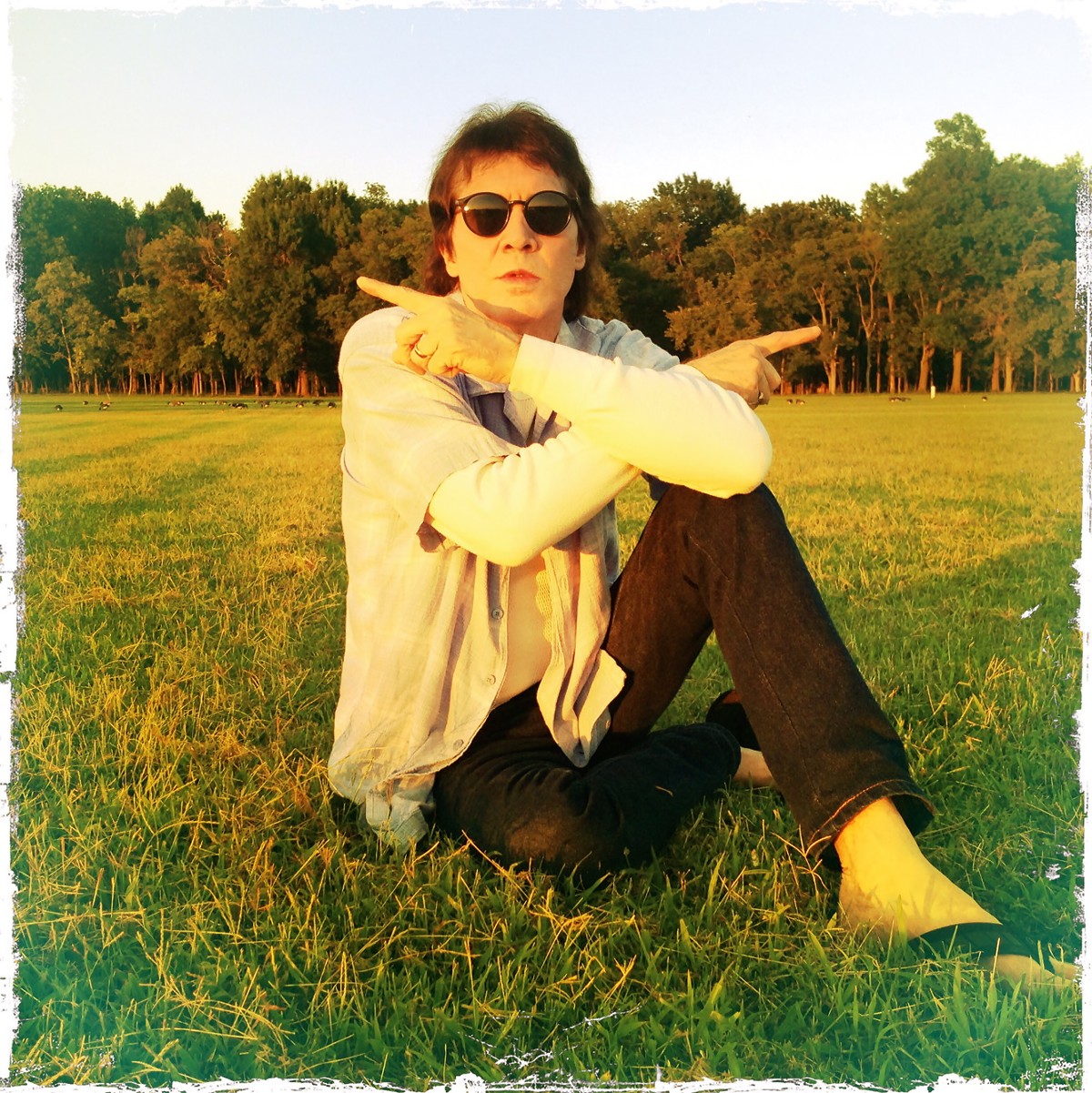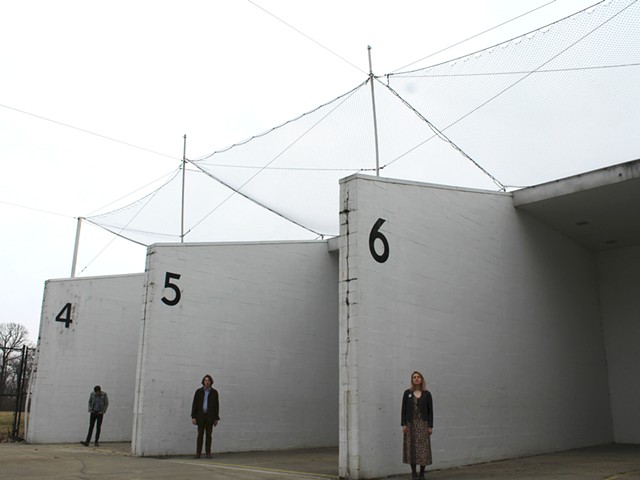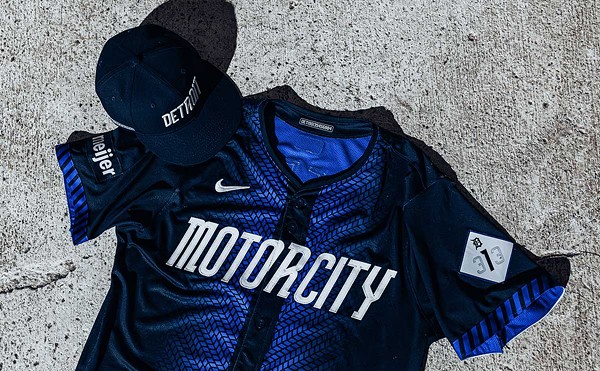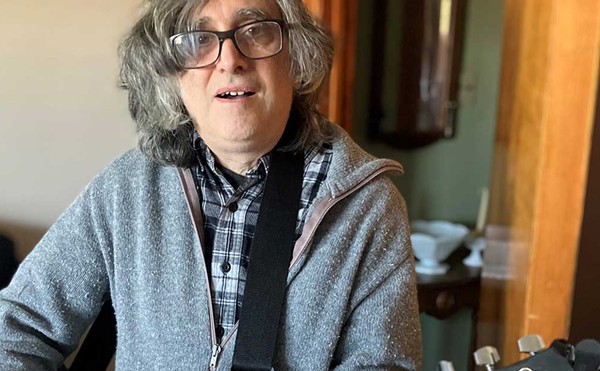Dwight Twilley is still on fire all these years later; it's just that now, with decades of experience in the music industry behind him and his own home studio to hole up in, he's in charge of the controlled burn.
You probably know him from the Dwight Twilley Band hit "I'm on Fire," released in 1975, or his solo hit "Girls" almost 10 years later in 1984. You might also know him through his connection to Tom Petty, as they both recorded at the same studio and appear on several of each other's songs. To lovers of power pop, Twilley's name is well-nigh legendary, but his musical influences extend in other directions, too; an early experience unwittingly wandering into Sun Studio with fellow Dwight Twilley Band member Phil Seymour as teenagers brought a bit of an edge to their music when they were introduced to Sun Records artist Ray Harris and the sounds of rockabilly.
Throughout the years, Twilley has always toured with a backing band — until now, inspired by a performance he did at a festival in Canada a couple years ago, where he was asked to perform some acoustic songs in addition to the full band show. Despite fears that the songs might sound empty, as built on vocal harmonies and intricate guitar parts as they are, he decided to do it anyway, and the audience responded well — so well that he began performing the "Look Ma, No Band" solo acoustic tour, which is what brings him to our fair city this month.
The format allows him to do songs he has never been able to play live before, songs that wouldn't fit with a rock band. "I'm able to do a lot of songs that people don't expect to hear, and hopefully a lot of them are ones they've always wanted to hear," Twilley told us — songs from before even the Dwight Twilley Band, when he was, as he says, just a kid.
Last in Detroit in 1989, Twilley is extremely affable and appreciative of the places his success has taken him. He's able to live and work as he does on his own time, with his wife Jan Twilley at their Big Oak Ranch in Tulsa, Okla., which also lends its name to the label they started to release Twilley's music on their own.
Born and raised in Tulsa, he eventually returned there after the Northridge earthquake destroyed his home in Los Angeles in 1994. The damage was so great that the city actually ordered him to leave, so he decided to go home. When he arrived, he set to work building the world of Big Oak — perhaps most importantly, his home studio, where he has been quietly recording album after album all these years. The culmination of all this work can be heard on his latest release, 2016's The Best of Twilley - The Tulsa Years - 1999-2016.
In advance of his performance at the UFO Factory, which is sure to be an intimate affair with several rarities on hand if fans are interested ("We bring stuff and junk," he says), Metro Times spoke with Twilley about some of the famous faces he has encountered during a lifetime in the music business, what his days are like now, and more.
Metro Times: The late Phil Seymour was your musical partner for a long time, in the Dwight Twilley Band and before. What was it like writing songs together?
Dwight Twilley: That's folklore — Phil and I never wrote songs together. I wrote all the songs for the Dwight Twilley Band. I specifically wrote Phil's songs for his voice. A lot of times, people ask me to do Phil's songs, like "Twilley Don't Mind" or "You Were So Warm." It's really not that easy for me to do because he had a higher voice than me, so they were really written for him.
MT: What can you say about how you combined your vocal harmonies with his vocal harmonies?
Twilley: You can take two great singers and put them in the same room and that doesn't necessarily mean that you're gonna end up with great harmony. It's really about the years, when you get to know somebody where you can complete the other person's sentence before they finish saying something, [and Phil and I] started out as little kids with our little acoustic guitars. It's interesting now too that the first two Dwight Twilley Band albums have really kept alive all these years. People seem to redeem them.
MT: What did the internet do for you as a musician and your fan base?
Twilley: It brought us into direct contact. Before, there were fans out there but you really didn't know how many or where. Now with Facebook and all the exposure, you get a feel for places you have fans. I'm happy to say how devoted so many of them are. It's humbling.
MT: Do you remember the last time you were in Detroit?
Twilley: Barely. I do remember in the early days having some great shows in Detroit.
MT: In the catalog of famous musicians you're associated with, Leon Russell is a major name that appears. Do you have any stories about him you wouldn't mind sharing?
Twilley: A lot of people think that Leon Russell signed us, which he didn't. We didn't meet him until after we had already recorded "I'm on Fire" and were working with Shelter [Records, the label Russell started with Denny Cordell]. We were recording in their studio, the Church Studio, and one night he just appeared in the back of the room. He said he had an album he was working on that was called Wedding Album and the single from it was called "Rainbow in Your Eyes." He came to me and said, "I like that 'I'm on Fire' song of yours, so I put that line in my song." The song has a line in it, "Baby I'm on fire and it feels so good," and I was very flattered by that. For a writer of his stature to give me that kind of a compliment was a nice moment. He was kind of scary, and foreboding, you know, with the beard and everything, but he turned out to be a very sweet and generous man. He invited us to come work at his 40-track studio, which in that day, a 40-track studio was something out of science fiction. He played on a few of the records with us and worked with us. There's not much I can say that isn't good about Leon. He's another example of the caliber of musicians that come out of Tulsa.
MT: You also come up in a story about the formation of Tom Petty's "Breakdown." Is it true that you came by the studio while he was playing it and suggested that the now-famous guitar riff should be played throughout the whole song instead of just at the end?
Twilley: This is a true story. We both worked at the same studio a lot, Shelter's studio in Hollywood. It wouldn't be uncommon for Tom to pop in when we were recording something or for us to pop in. I know it was late at night and he was in the studio alone. I came in — I do believe that I was somewhat intoxicated — and he played me the song. In the first place, I thought it was way too long, it seemed to go on and on, but right as the song was fading out, there was just this little lick Mike [Campbell, lead guitarist of the Heartbreakers] had done, it was just briefly there as the song was fading, and I said, "Tom, I think that is your hook right there" and then didn't think anything else about it. Later on I learned after I left, around two in the morning, that he called the band back into the studio and they totally re-recorded the whole song. I remember recently hearing him speak about the fact that he could probably never do that, get them to come back at that hour, now.
MT: What is a day in your life like these days?
Twilley: Different because it used to be that all we did was record [and do] little tours in-between the records. I'd be waking up and going into the studio, either writing a song or working on the production. It's been different not constantly recording. We've just about worn our studio out, too. But now I'm more reflective. I've got some secret projects going on that are gonna take a little while to come to life. It's also nice to have more time to focus on getting out and playing for people. We really are enjoying it.
MT: Even musicians who have made it in some form or another often have to do other work on the side. What has that been like for you?
Twilley: I've been fortunate because even though I have done so many stupid things in my life, incredibly stupid things, there was one thing I never did. I never sold my publishing. I'm fortunate in that the songs have always taken care of me. Sometimes I look at other people and I think, "I cannot believe they don't get publishing checks." It doesn't seem fair.
People look at the music from the outside and think once you had a hit, or a couple of them, that you're set for life. That's not really the way it works for people in the music business permanently. You have ups and downs. You go through periods where you're broke and then all of a sudden you have so much money you don't know what to do with it for a while. People that don't know that or don't know how to live that way are the ones that usually disappear or make bad mistakes. I had people advising me when I was broke, "You have to sell your catalog. Or at least sell this song, or that song." There was a manager who was pressing me to sell my publishing literally weeks before I got "Why You Wanna Break My Heart" in Wayne's World.
But it's a lot of work, too. It's a lot of work that I did when I was young.
MT: Do you remember when you wrote your very first song?
Twilley: No, but somewhere around 15 or something. My little brother had a little guitar and he got tired of it and left it in his closet. I pulled it out one day and thought, "I'd love to play some Beatles songs." My dad had shown me a few guitar chords, but I quickly discovered that Beatles songs are too hard to play. I couldn't play them. I thought maybe I could just make up a song on my own. The minute I got into that I was captivated by it and always have been. I think of myself as a songwriter above anything else.
MT: Can you name a personal favorite among your music or is that crazy to ask?
Twilley: We talk about this all the time. Our favorite song is always the new one.
MT: Do you have any tour memories that stand out?
Twilley: In the early days, when the Dwight Twilley Band would be playing Detroit and Cleveland and cities like that, one of the things I remember vividly is you would go out and play the show. You'd have this great audience, and they'd be very enthusiastic so you put on the best show you could, and everybody felt really good about it. Then you'd say goodbye to the audience, leave the stage, get in the bus, go back to the hotel, and there was your audience, at the hotel! [Laughs.] You'd walk in, and the same people you just left are all waiting for you at the hotel. You ended up having to get real clever about it and protective of your room. We even had a special knock, a little pattering on the door. It was just a funny experience. We weren't ready for it, really.
MT: What inspired you to write a parenting book in 1994?
Twilley: I was one of those long-distance parents. I had a little girl that lived in a tiny town called Murfreesboro, Arkansas, and I was out on the road and playing all over the country and living in Los Angeles. I hardly ever saw her so I just came up with this method for people to communicate with their kids. It was called Questions From Dad: A Very Cool Way to Communicate With Kids. It was an interesting experience. I wouldn't do it again. It was strange going on TV without a guitar. I got letters from people in prison and people in the military who were very thankful for the book.
MT: Speaking of guitar, can you tell me a bit more about your instruments?
Twilley: I've had a lot of guitars, but not like some people who are collectors. I've never been a connoisseur of equipment or guitars. Actually, my late friend, the great Bill Pitcock IV, lead guitar player for the Dwight Twilley Band and on records we've done here at Big Oak for the last gazillion years, he always bought my guitars. [Laughs.]
MT: What about effects?
Twilley: I'm known for singing with echo, which most people are happy about (if they're fans), but sometimes it's difficult with people that run sound. They don't quite understand it. A lot of the use of echo goes back to my early experience in the world of Sun Records and rockabilly. The thing is, a lot of people think that echo is something you add to your voice. With me, echo is a tool. I sing with the echo, I don't add it to my voice. You will almost never hear me sing in the studio or anywhere without echo.
Dwight Twilley plays UFO Factory with Craig Brown Band on Friday, March 24; starts at 8 p.m.; 2110 Trumbull St., Detroit, Michigan; ufofactory.com; $15.






